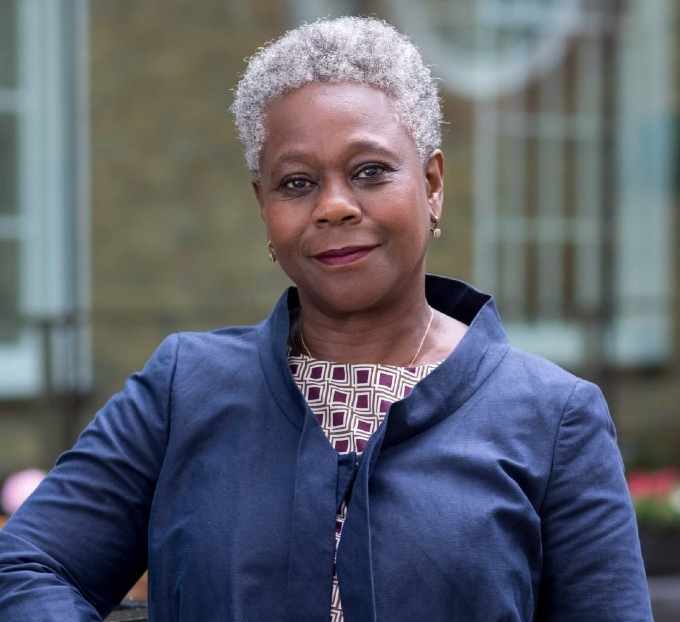The fight for fair pay, supporting wellbeing at work and looking to the future – 12 months on from the start of the pandemic, RCN reps come together at our online conference
Our online joint reps conference, titled “Healing and rebuilding: finding hope for the future”, was held on 18 and 19 March. It was a chance for learning reps, safety reps and stewards from across the UK to reflect on the crucial role they’ve played in supporting members during the COVID-19 pandemic and to look ahead to the influence they can have going forward.
The event programme, designed by members of the three RCN UK reps committees, allowed reps to explore how they can influence employer agendas coming out of the pandemic and the central role they can play in the fight for fair pay.
The conference also highlighted that the mental health and wellbeing of nursing staff should be prioritised now more than ever, and in particular as health and care employers look at returning to “normal” service. The programme also sought to remind reps of the importance of looking after themselves, with sessions on available support, mindfulness and self-compassion.
Using our new conference platform Hopin, reps were able to take part in interactive break-out sessions, ask questions and network with one another throughout the event. Here you can read an overview and sessions will be available for reps to watch again soon on our online learning portal.
Fair Pay For Nursing
‘The fight is squarely on’
RCN Chief Executive & General Secretary Dame Donna Kinnair opened the event by acknowledging how recent conversations across the UK and elsewhere in the world, on women and safety and equality and racism, are so pertinent to the nursing profession and the work of reps.
“At its heart, our profession is a progressive one,” said Dame Donna. “It drives for greater equality in health and life chances. Nursing is a tapestry of all nationalities and cultures, and we celebrate that rich diversity.”
Dame Donna told reps: “Equality – or inequality – takes many forms. Discrimination based on race, age, gender, sexual orientation or disability – as professionals and trade unionists we’re driven by the thought of truly eradicating that.”
Reflecting on her speech from last October’s joint reps conference in which she highlighted how damaging the outdated ideas that nursing is a vocation or “women’s work” can be, Dame Donna said: “I believe that in the last 12 months, your work has smashed every old stereotype about nursing.
“You have set out the true picture of the realities and complexities of modern nursing. The public has seen it. The politicians have seen it too. And the fight is squarely on getting the salary that matches what you do.”

Dame Donna shared with reps her disappointment in the government’s recent proposal of a 1% NHS pay award, outlined in its written evidence submitted to the NHS Pay Review Body (PRB) earlier this month, but reassured them that the fight for fair pay for nursing staff in all settings was far from over. Pointing out that choosing to pay nursing staff fairly is a political choice, Dame Donna said that the next pay award must acknowledge the realities of the role and appealed directly to Prime Minister Boris Johnson to think back 12 months.
“When he told the world he owed his life to the care of nursing staff, when he acknowledged that the people who looked after him were putting themselves in harm’s way, he had his eyes opened to the difference 21st century nursing makes,” Dame Donna said. “He told the country it was two nurses who stood guard for 48 hours and made lifesaving interventions. How would he feel if he saw them now?”
Dame Donna’s message to the Prime Minister was clear: “They stood by you, now stand by them.”
Members have the power to make their voices heard loud and clear
Urging reps to keep the pressure on, she added: “The decision on pay might be in the hands of government, but members have the power to make their voices heard loud and clear.”
Setting the scene for the rest of the conference and bringing her speech to a close, Dame Donna went on to consider what needs to happen as nursing staff come out of the pandemic. She highlighted that although the debate about services returning to “normal” must have patient needs at its centre, it cannot come at the expense of members’ wellbeing.
“As accredited reps, you will know the struggles fellow members face every day in their working and personal lives. The last 12 months have been like no other and they leave a great number of causes we must fight hard to win,” she said.
Dame Donna also implored reps to continue to challenge inequality and understand its structural nature. “Our demand must be that these structures are disrupted, transformed or rewired to deliver real and tangible change,” she said. “Together, we will keep up the fight for equality – both for our patients and ourselves.”
I know that when we're determined, we can win. Let's do this for our profession and more importantly for our patients
Following her speech, Dame Donna was joined by Chair of the RCN Professional Nursing Committee Rachel Hollis and Acting Chair of the RCN Trade Union Committee Denise Kelly for an update on the Fair Pay For Nursing campaign and to give reps the chance to ask questions.
Emphasising the inextricable link between fair pay and staffing for safe and effective care – a key area of work for the Professional Nursing Committee (PNC) – Rachel told reps that PNC members were dedicated to continuing to raise the professional standing of nursing so that everyone recognises the need for fair pay.
“Pay is not just the pounds in your pocket,” said Rachel. “It’s also the real and tangible demonstration of the value that this government and this society place on nursing. We know that some of the reasons nurses are considering leaving the profession are low staffing levels and the pressures on services.
“But we also know that pay, and the value placed on nursing that pay represents, is the largest factor in driving people from the profession that we all love and are committed to.”
Condemning the UK government’s position on pay as “outrageous”, Denise said: “The last year has shown the best of nursing and yet the politicians want to forget and put us back in our box. Well, it’s not going to happen.”
Calling on reps to continue to spread the message to members and keep them engaged in the campaign, Denise said: “That’s what’s going to drive and win this campaign.
“It is an enormous challenge, I’ve no doubt about that. I’ve worked on the frontline for the last year and know exactly what each and every one of you has gone through. But I can see we’ve got this final bit of fight within us.
“I know that when we’re determined, we can win so, I’m appealing to you all, find that last bit of fight and let’s do this for our profession and more importantly for our patients.”
‘Spread the word’
- Stay active: download campaign posters and use our materials to talk to colleagues about the importance of Fair Pay For Nursing in your workplace.
- Stay engaged: encourage members to sign up to become an e-campaigner to hear updates on our campaigns and easy online actions they can take to support the campaign.
- Stay in touch: ask members to make sure their details are up to date on MyRCN, especially their employer and workplace details, so we can contact them.
The full Q&A session on pay will be available to watch again on our online learning portal in April.
During the conference, reps were also able to attend break-out sessions on pay, including on getting active on NHS pay and conditions, and improving pay, terms and conditions in the independent sector. These sessions will also be available to watch again soon.
Reps in action
Throughout the COVID-19 pandemic, reps have given incredible support to members. In a break-out session, three reps shared their stories.
Working together
Fiona Devlin, an RCN steward in Northern Ireland, explained how partnership working between reps has been fundamental in ensuring community nursing staff could work safely. When the pandemic began, district nursing staff and school nurses were reporting many issues including unclear infection prevention and control (IPC) guidance, inadequate personal protective equipment (PPE) and a lack of support.

Fiona worked with local safety rep John McMurran to find a solution. Together they liaised with members and raised the issues at various meetings and committees, escalating to senior management, within the RCN and at a national level in Northern Ireland.
As a result of their work in highlighting these issues, safer systems were put in place with improved guidance and policies, and access to appropriate PPE.
Fiona said the experience has really highlighted to her the benefits of working with other reps and she has seen the influence safety reps can have: “They have important statutory powers – they’re listened to.”
Fiona said: “As reps we need to work in partnership to obtain the best outcomes. Never be afraid to keep escalating your concerns at every level until you get the right outcome.”
Keeping members safe at work
RCN steward and staff side chair in the Northern Region, Roaqah Shaher shared how integral reps on her organisation’s staff side committee have been in ensuring the right processes are in place throughout the pandemic.

Roaqah said that close partnership working between reps and relevant teams, such as communications, health and safety, HR and occupational health, has enabled processes to be jointly agreed ensuring members’ experiences and feedback inform decisions. Roaqah said that from the start of the pandemic, reps in her trust have made sure they are visible and easily contactable so they can listen to members to find out the challenges they’re facing and what support they need.
Some of the positive outcomes achieved by reps have included a robust procedure for ongoing risk assessments and enhanced data collection on this, and a formalised process for managers to maintain regular contact with staff who are shielding or redeployed to different areas.
“For any process, procedure or policy to be effective, inclusive and accepted, they first need to be developed in partnership,” said Roaqah. “Be persuasive. If you believe in what you do and remain committed and confident, you will bring about change.”
A new way of working
RCN learning rep in Wales Peter Griffiths shared his experience of undertaking learning to become a rep online – something that has been introduced by the RCN during the pandemic.

Previously reps would meet face-to-face in a group setting for their initial learning, but Peter said despite the pathway now being online there’s still opportunities for reps to connect virtually on Microsoft Teams to meet one another and discuss what they’ve learnt.
Peter also spoke about how reps and organisations in rural areas can benefit from being able to hold online meetings and training, and he feels that during the pandemic many people have become more comfortable working in this way.
Peter said: “Online platforms have enabled us to continue to go through learning processes – whether it’s through the RCN, your workplace or university. They are very useful and something that as reps we can use more in the future.”
Read more about our online learning and development pathway for reps.
Got a story to share?
We're putting together a publication featuring stories from RCN reps on how they've been supporting members during the COVID-19 pandemic. If you want to be involved, email Mairead O'Siochru with your name, rep role and some brief information on what you'd like to share.
Wellbeing at work
The courage of compassion
On day two of the conference, reps heard from keynote speaker Professor Michael West, senior visiting fellow at The King’s Fund and professor of organisational psychology at Lancaster University. Professor West’s session focused on how health care organisations can move forward, navigating through the pandemic and the difficult experiences health care staff have faced, and create the conditions where staff can deliver the compassionate, high quality care that they want to.
Professor West’s session drew on findings from his recent report, The Courage of Compassion: Supporting Nurses and Midwives to Deliver High Quality Care, which sets out key recommendations for health and social care leaders to support the wellbeing of nursing staff across the UK, calling on them to lead with compassion.
The report, which was commissioned by the RCN Foundation and produced by the Kings Fund, highlights that the COVID-19 pandemic has put unprecedented pressure on nursing staff with a huge impact on staff wellbeing. But Professor West said even prior to the pandemic, the workforce situation in health and social care in the UK was “as perilous as it has been” since the NHS was created in 1948 with high levels of stress, nursing vacancies and sickness absence.
“We can’t simply treat coming out of the pandemic as a time for recovery,” Professor West told reps. “We have to take a longer view and recognise that the difficulties pre-existed the pandemic. We have to commit to transforming cultures and leadership in our health and care services.”
Professor West said he believes that the most important factor that’s enabled nursing staff, and indeed society, to get through the challenges presented by the pandemic has been compassion – compassion for patients, colleagues and within communities – and that compassionate leadership and cultures are the key to supporting nursing staff, improving working conditions and wellbeing, and in turn improving patient care.
Professor West told reps the factors that constitute effective leadership are also the key qualities of compassion – listening, understanding, empathising, and helping – and that compassionate leadership embodies inclusive and collective leadership too. “It takes a lot more courage to be compassionate than the easy opt out of control and command leadership,” said Professor West.
We can't simply treat coming out of the pandemic as a time for recovery. We have to take a longer view
The report identifies that nursing staff have three core work needs that must be met to ensure wellbeing and motivation at work, and to minimise workplace stress: autonomy, belonging and contribution – all of which rely on compassionate leadership.
Professor West said: “Research tells us that all three of these needs must be satisfied for people to be well at work and it’s really important to understand this. If we want to address the issues of stress, staff turnover and retention, it is these issues that we must address.”
Putting mental health support in place is important and necessary, said Professor West, but unless employers address the underlying causes of stress and other workplace frustrations then they’re dealing with “symptoms and not causes”.
Recommendations set out in the report are designed to meet the core work needs and focus on:
- authority, empowerment and influence
- justice and fairness
- work conditions and working schedules
- teamworking
- culture and leadership
- workload
- management and supervision
- learning, education and development.
Professor West went on to highlight to reps some examples where organisations were doing things well, such as making time for staff to meet to discuss and influence decisions or implementing a just culture approach – shifting from a blame culture to one of learning. Reps can find further examples of good practice from across the UK in the report.

At the end of his session, Professor West left reps with an important message – he thinks all of this begins with having the courage to be self-compassionate: “Being empathic with ourselves and taking care of ourselves.”
Getting the right support
In a break-out session delivered by Valerie Bailey, Head of Member Support Services, reps were able to find out more about what services the RCN has available to support members’ mental health and wellbeing.
Valerie ran through information about the range of free, confidential services offered by the RCN to support members with issues both at work and at home. This includes counselling for members struggling with issues such as stress and anxiety, and services offering advice and support on finances, welfare, immigration, and careers. There is also a peer support service which offers a network for ill and disabled members to share experiences and knowledge.
Valerie said: “We have seen an increased need for many of our services during the pandemic, including more members seeking psychological support, and we’ve recently expanded our counselling offer to include specialised trauma based therapy, funded by the COVID-19 Healthcare Support Appeal.
“We’ve also set up a COVID-19 support network as part of the RCN Peer Support Service and we’re starting to see the issue of long COVID come up frequently within this group. The network is a key resource and source of support for members experiencing this, and the information that’s shared is also helpful for us in terms of influencing policy decisions and showing what members are facing.”
We want members to come to us sooner rather than later so they can get the help and support they need
Valerie added: “The services are there to support all members, including reps. We want members of the nursing workforce to come to us sooner rather than later so they can get the help and support they need.”
Valerie also told RCN reps that they can play an important role in promoting RCN support services to members, including our new specialised trauma therapy.
Find out more about RCN Member Support Services.
There is a dedicated email address which reps can use to contact the RCN Member Support Services team if they ever have questions or want to find out more about the services on offer. Contact the team.
Looking to the future
Much of the discussion over the two-day conference saw reps look to the future, including exploring how they can influence employer agendas coming out of the pandemic to make sure nursing staff are supported.
In her speech at the end of day two, RCN President Professor Dame Anne Marie Rafferty spoke to reps about the RCN’s Principles for Return to Service – eight key principles focused on staff recovery and patient safety which must guide health care employers in planning the return to “normal” service delivery.
“The RCN is demanding a nursing voice as part of those discussions,” said Anne Marie. “It should be a routine consideration because the people on the frontline are the people who understand how those processes need to be enacted.”
Crucially, the principles include that staffing levels must be urgently addressed and must return to pre-COVID-19 levels as a minimum, particularly in areas such as intensive care where ratios were diluted to unsafe levels during the pandemic.
The principles emphasise that nursing staff need rest and recuperation, including funded time out in addition to annual leave, as part of any “recovery and retention strategy” in health care and highlight the importance of nursing staff having timely and ongoing access to services to support their mental health and wellbeing. The RCN is also calling for long COVID to be recognised as an occupational disease with appropriate support put in place.
Anne Marie told reps that even with extensive vaccination programmes, the occupational risk to nursing staff remains high and the principles reflect this, reiterating the RCN’s calls for a higher level of personal protective equipment to be used as a precautionary measure as new variants of the virus emerge.
They also call on employers to consider the increased risk faced by health care staff from black, Asian and minority ethnic (BAME) backgrounds and take action to reduce the risk and protect staff from the impact of COVID-19.
In a break-out session earlier in the conference programme, reps were encouraged to familiarise themselves with the principles and language used in the document setting out the RCN’s principles to ensure these important factors were being considered in any relevant discussions with employers.
The pandemic has no doubt changed the roles of reps in the workplace and the way in which you’ve had to work
Anne Marie also used her speech to thank reps and to touch on some of the work the RCN is undertaking to review rep roles to ensure reps have the support they need to carry these out.
“The pandemic has no doubt changed the roles of reps in the workplace and the way in which you’ve had to work,” said Anne Marie. “You’ve been called upon to support members throughout the whole of the health and care system. You’ve been giving so much to members and your organisations during these horrendously challenging times.
“I just want to say thank you for all that you have been doing and for the time and talent you’ve invested in your roles, over and above your daily duties to try and be at members’ sides and support them.”
Reps will be able to listen to Anne Marie’s full speech on our online learning platform in April.
Following Anne Marie and bringing the conference to a close, RCN Deputy President Tracey Budding spoke to reps for the first time since being elected to the role.
I want you all to leave today feeling you can look ahead to the future of nursing
Reflecting on the integral role that reps have played in supporting members during the pandemic, Tracey said: “Your standing inside the College, among members and with your employers will help us to emerge from COVID stronger than before.
“You should take so much pride in what you have achieved and so much confidence in knowing that RCN reps in the present and coming years are needed now more than ever.”
Tracey added: “I appreciate that the pandemic has meant we’re working day to day, rather than looking too far into the future. But I want you all to leave today feeling you can look ahead to the future of nursing and feeling positive about the future of your role as a rep.
“Thank you for everything you do for our members – with you, we’re able to amplify the voice of members and shape the future of the profession.”
More information
Sessions from our joint reps conference and answers to questions posed by reps during the event will be available to watch again soon on our online learning portal. Use your MyRCN details to login or find the link in the RCN Reps Hub.








